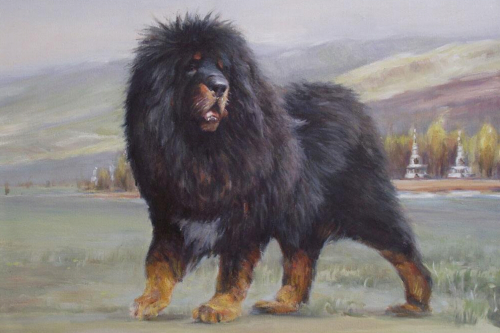Luxury Goods
奢侈品
Xi Jinping’s crackdown on corruption is hitting Chinese luxury-peddlers harder than foreign ones
习近平的反贪行动对中国奢侈品商的影响远比对外国厂商大
Chen Binqi grows and sells abalone, a delicious kind of mollusc, in Dongshan, a seaside resort in the southern province of Fujian. He says that from 2010 to 2012 the price never dropped below 50 yuan ($7.7) for 500 grams on tomb-sweeping day, a public holiday and one of the busiest days for tourists. In 2013 it fell to 40 yuan, which meant most breeders were selling below cost. “Now it’s down to 30-something, which is unbearable.”
鲍鱼是一种美味的软体动物。陈斌奇(音译)是南部省份福建海边胜地东山一家养殖厂的老板,负责鲍鱼的养殖和出售。他说,2010年到2012年间鲍鱼在清明节的价格每斤从未低过50元(7.7美元),而清明节作为公众假期是旅游业最繁忙的时节之一。但到了2013年,鲍鱼的价格下降到了40元每斤,很多养殖户都以低于成本的价格销售。“现在价格只有三十多块,这个价格低得不能忍。”
In the neighbouring province of Guangdong, Lin Gongxi has been carving jade for 50 years in Jieyang, China’s jade capital. When business was good, he told Southern Metropolis Daily, he used to go to bed at 2am and get up at 6am. Now he often has no work for eight days out of ten. Half the shops at Jieyang’s jade-trading centre are empty. Rents have fallen by three-quarters.
在邻省广东素有“中国翡翠之都”之称的揭阳市,林恭喜(音译)已经从事翡翠雕刻工作长达50年。他告诉《南方都市报》记者,当行业景气时,他每天深夜两点睡觉,早上六点就要起床。而现在,十天中的八天他都没有工作可做。揭阳翡翠交易中心近半数的商铺都已经人去楼空,而店铺的租金已经下降了四分之三。
In Beijing’s Panjiayuan market, Wang Lin sells copies of Ming and Qing dynasty carved furniture. Same story. Businesspeople used to order ten-piece suites of office furniture; he sold them as fast as his carpenters could make them, sometimes faster (there was a waiting list). Now, prices have halved and he “can shift maybe a couple of chairs out of ten”.
北京的王林(音译)在潘家园市场销售仿明清家具,而他的命运也和上面几位差不多。商人曾经对十件套办公家具情有独钟。供货商出厂一套,王林就能销售一套,甚至有的时候会出现供不应求的现象(还有等待发货的买家名单)。虽然现在这些家具的价格下降了一半,但他在十把椅子中只能卖出两三把。
China is the world’s biggest market for luxury goods, accounting (by some measures) for half of all luxury spending. The slowdown in the growth of China’s economy and household incomes is usually seen as bad for rich-country purveyors of luxuries such as perfumes, golf clubs, art and the like. Which it is: LVMH, a producer of champagne and handbags, recently closed three shops in China, while Christie’s annual auction of Asian 20th-century and contemporary art in Hong Kong earned only HK$508m ($66m) in November, down from HK$935m in 2013.
中国作为全球最大奢侈品的市场,据某些数据报道显示,占了全球奢侈品销售总额的一半。中国经济增长的放缓和家庭收入增长的停滞对于富裕国家的奢侈品厂商来说通常都不是一件好事,其中就包括香水制造商、高尔夫俱乐部、艺术等等类似的产业。举几个例子:路易威登是生产香槟和手提包的奢侈品厂商,而最近路易威登关了三家中国境内的门店。克里斯蒂拍卖行11月在香港拍卖20世纪亚洲以及当代艺术品的收入仅为5.08亿港元(6600万美元),而在2013年该数字为9.35万元。
But the woes of Western vanity mongers are trifling compared with those of their Chinese counterparts. Prices of jade and Tibetan mastiffs, for example, have dropped by half or more. Hundreds of businesses have gone bust. This owes as much to politics as economics.
但这些外国虚荣贩子的遭遇相比他们的中国同行来说就太轻微了。举个例子,翡翠和藏獒的价格已经下降了一半或者更多。过百数相关企业倒闭。但在此之中,除了经济因素,政治因素也发挥着一样重要的作用。
Take Tibetan mastiffs, a breed of enormous sheep-guarding dog. These were the must-have status symbol for China’s new billionaires in the late 2000s. Three years ago ordinary Tibetan mastiffs could fetch around $20,000. Now they sell for a tenth of that. Earlier this year an animal-welfare group rescued 20 abandoned mastiffs from the back of a lorry, which was taking them to a slaughter house to be sold for leather and meat – for a mere $5 each.
藏獒是一种体型庞大的牧羊犬。在新世纪前十年的后半段,藏獒对于中国新晋的亿万富豪们来说是必须拥有的身份象征。3年前,一只普通的藏獒价格能够高达20000美元。而现在价格仅为当时的十分之一。今年早些时候,一个动物关爱组织在通往屠宰场的路上从货车车厢中救下了20只被遗弃的藏獒,原本等待他们的是被宰杀后分解为毛皮和狗肉出售,而售价仅为每只5美元。

Tibetan mastiffs were a fad for plutocrats, usually bought as status-enhancing guard dogs. But demand for most other Chinese luxuries depends on a culture of gift-giving. Every transaction must be marked by a present: jade, tea, a meal. One billionaire, Hong Weihua, even paid for a delegation of officials from his hometown to visit America (quite legally).
藏獒通常作为提升身份地位的看门犬,是富豪兴起时的玩物。但对于其他大多数中国人来说,对于奢侈品的需求源于中国特有的送礼文化。每项交易都以送礼为特征,包括翡翠、茶叶或者饭局。亿万富翁洪维华甚至出资资助家乡的官员代表团到美国考察(但这是合法行为)。
Since 2013 the anti-corruption campaign of Xi Jinping, China’s president, has made conspicuous consumption politically suspect and reined in the practice of lavishing gifts on officials. Tea used to be a favourite present, especially Pu’er, a fermented and aged variety from the south-western province of Yunnan. The price of top-of-the-line Golden tea from the Tae tea company, the world’s largest Pu’er maker, fell from 917 yuan per 357 grams in March 2014 to 512 yuan, before rallying a bit. The president of the Yunnan Tea Association told the Kunming Daily that, after a boom and bust, the tea business was entering “a new normal” (a term popularised by Mr Xi, who uses it to describe slower growth of the economy as a whole). This means lower prices and more modest sales.
自2013年,国家主席习近平的反腐运动让大手脚的消费成为政治上的黑点,也禁止了官员之间送大礼的行为。茶叶曾经是最受人喜爱的礼物,特别是西南省份云南产出醇厚的普洱。全球最大的普洱厂商塔尔茶叶公司生产的顶级金叶价格从2014年3月的每克917元下降到512元,后来略有上升。云南茶业协会主席告诉《昆明日报》记者,在经历快速发展和逐渐衰落后,茶业正在进入“一个行业新常态”(这个术语因习近平而广为人知,他用词来形容经济增长总体放慢)。这意味行业更低的价格和更少的销售量。
The abalone business shows that it is Mr Xi’s rule against “extravagant eating and drinking”, rather than a lack of cash, that lies behind the luxury squeeze. Mr Chen, the seafood-dealer in Fujian, says abalone is not especially pricey, but because it is seen as a luxury “sales took a big hit”. Of the breeders he knows, 40% quit during 2013 and 2014.
鲍鱼养殖的遭遇很好地说明了奢侈品产业的衰落背后不是现金的缺少,而是习近平反贪行动中对于“挥霍吃喝”的管制。福建海鲜商贩陈先生表示,鲍鱼的价格其实不是特别地昂贵,但因为人们都认为鲍鱼是奢侈品,因此鲍鱼的销售额遭受冲击。陈先生表示他知道的同行中有40%在2013年和2014年推出了鲍鱼养殖。
At the top end of the mastiff business, itis not so bleak. In 2011 a coal baron is said to have paid 10m yuan ($1.5m) for Big Splash, a Tibetan mastiff puppy. In 2014 a property developer paid 12m yuan for a dog, making it the world’s most expensive canine. Han Lianming, a mastiff breeder near Beijing, says the market for such finest-quality dogs still looks good. “Someone offered me 20m yuan for that one. It was crazy.” he says contentedly, pointing to a vast ball of russet fur and teeth that is lumbering around the courtyard (the deal did not come off). A select few millionaires appear immune to the anti-corruption campaign and unfazed by dog-breeders’ efforts during the boom years to boost supply by crossbreeding. This diminished the rarity-value of mastiffs, but it also produced some highly sought-after specimens.
但高端的藏獒买卖则没有像其他产业那么惨淡。2011年,一个煤矿大亨据说用1000万购买了一只藏獒亚种大飞溅。2014年,一个地产商以1200万的价格购买了一只宠物狗,创造了全球最贵宠物狗记录。韩连明(音译)是北京附近的藏獒养殖户,他表示优质的藏獒的是市场前景依然很好。他开心地指着一只身形巨大、毛发蓬松、牙齿锋利、在院子里疯跑的藏獒说“有人出2000万来买那只藏獒,简直是疯了。”(这项交易最后没有发生)有少数富翁对于激烈的反贪行动无动于衷,也对藏獒养殖户在全民养獒时交叉配种以提高产量的做法没有表示。这样的做法让藏獒的珍稀性不再,但同时也导致一些广受欢迎品种的出现。
The jade market, however, has little good news to report. Yu Ming, the director of the jade committee of the China Traditional Culture Promotion Council, a state-run body, says that though sale sat big auction houses are holding up, the retail business is plummeting. In big cities such as Beijing they have fallen by 10-20%. In second- and third-tier cities (such as provincial capitals), he says, sales are down by 40-50%. In2013 there was a spike in the price of raw jade from neighbouring Myanmar, when political violence briefly disrupted supplies. Mr Yu says many thought the conflict would lead to higher prices in China. But to everyone’s surprise the tail price actually fell. “There just isn’t that big a market anymore.” he laments.
然而翡翠市场却很少会传出好消息。政府出资建立的中国传统文化促进会翡翠委员会的主席于明(音译)表示尽管大型拍卖会中翡翠的价格持续上升,但翡翠零售业却不断地走向低谷。在北京一类的大城市中,翡翠的销售量下降了10%-20%。他说,在例如一些省会的二、三线城市中,销售量甚至下降了40%-50%。2013年,因为邻国缅甸政治动乱干扰翡翠的供应,从缅甸进口的翡翠原料有过一段时间的增长。于先生说,有很多人认为这次的动乱会导致中国翡翠价格的上升。但出乎所有人的意料的是,翡翠价格在实际是下跌的。他感叹道:“这个市场只是不再像从前一样大了而已。”
英文、中文版本下载:http://www.yingyushijie.com/shop/source/detail/id/504.html








